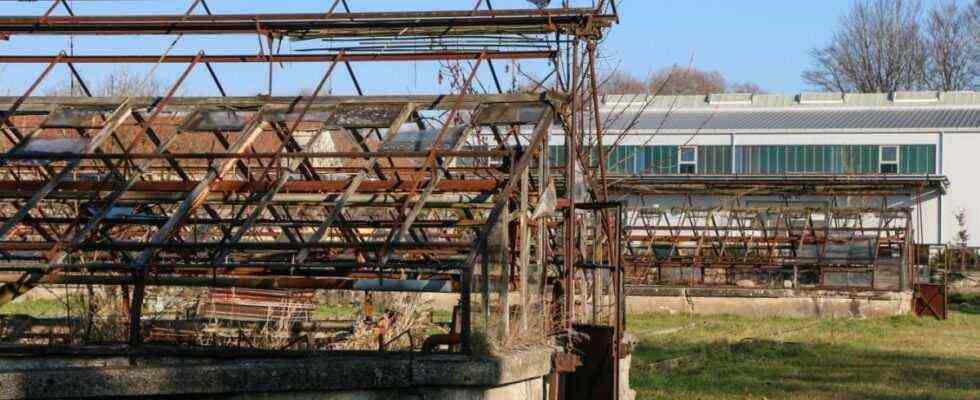The greenhouses on the site at the so-called herb garden in Dachau are in danger of falling into disrepair. All those involved – above all the Bavarian Memorials Foundation – have known about this situation for years. Again and again there is talk of an immediate need for action and an imminent change. Nevertheless, there is still a standstill.
Anyone looking for answers to the question of why that is so will quickly find themselves in a system in which responsibilities are shifted back and forth and apparently nobody wants to take responsibility: the memorial itself cannot comment on the status quo – for these questions the Bavarian Memorial Foundation is responsible. This in turn sees responsibility with the city of Dachau, which owns the site. Lord Mayor Florian Hartmann (SPD), who has long wanted to give the area into the hands of the Free State on behalf of the city, says: “From our point of view, everything necessary for the takeover is available.”
It is a game of reprimanding: as early as 2014, Hartmann, who had only been in office for a few months, corrected the foundation and its director, the state parliament’s vice-president Karl Freller (CSU), that the Free State had to take the necessary funds in hand. Freller, on the other hand, imagined the matter as a joint project between the city and the Free State. In 2018, Dachau then offered the Free State the space at a symbolic price of one euro – an offer that is still there today. So far, the Free State has not consented – but not out of a lack of interest, but because of a lack of soil reports on possible contaminated sites. A matter of form, as Freller explains again and again. For him there is no question that the “herb garden” has to be opened up to visitors and as part of the memorial.
The “herb garden” was part of the Dachau concentration camp. On the property east of the Alte Römerstrasse, the SS men forced prisoners to do inhumane work. Heinrich Himmler was behind the project and wanted to improve German public health with the plantation’s organic products. Between 1939 and 1945, more than 800 concentration camp prisoners, mostly Jews as well as Sinti and Roma, died on the plantation.
Many discussions were held about a memorial site on the historically significant area. There have been enough ideas for the use and design of an exhibition on the site since the symposium in 2012 at the latest. Little has happened. After long breaks in conversation caused by corona, the project is making headway again, said Freller. At the moment there is an agreement that the city will provide a soil report that is already available for a neighboring property and, in a roughly simplified manner, states that no contaminated sites could reach the “herb garden” which is to be sold. As soon as the Dachau building authority and the state building authority Freising agree on this matter and an assessment is available, the takeover can take place. Should additional investigations be necessary, according to Freller, the foundation would even contribute 50,000 to 60,000 euros – and that although it is only “interested in the later use and not the owner of the property”, the foundation president never tires to emphasize.
The intention of the statement is clear: It is intended to dispel the doubts of those who were unsure whether the seemingly endless reprimanding and postponing how serious the foundation’s interest in the “herb garden” really is. One of them: Florian Hartmann, who on the phone says apparently emotionless: “I’ve already come to terms with the fact that nothing happens.”
Freller, however, insists on good cooperation, on common ambition for the future and emphasizes that none of those involved today can do anything for the current situation. 50 years ago, other priorities were set. He doesn’t want to “reenact the good mood” – just to mention in a subordinate clause that the city, as the owner, is still responsible for the preservation of historical monuments and possibly should have better prevented the increasing dilapidation of the greenhouses.
However, priorities are likely to play an important role in the future as well: In view of the numerous major projects that are pending in the Dachau memorial in the near future – a new exhibition is to be designed, the two camp barracks renovated, buildings taken over by the riot police and integrated into the memorial – , the development of the “herb garden” probably only plays a subordinate role. Capacities not only of a financial but also of a personnel nature, for example in the state building authority, are likely to be decisive. “That could take years,” says Freller. You need “staying power”.

